There’s been a lot of military TV shows, some good, some bad, and I decided to make a list of which ones I thought were the best. Let me know in the comments whether you agree or disagree?

5 Stars Earn Stripes. New show, but I like it because it reminds me of number 2 on this list—but more on that later.
Stars Earn Stripes premiered on August 13th, 2012, and is in its first season. The series is a reality TV show that follows a group of celebrities, accompanied by members of the United States Armed Forces and others, competing in various challenges for charity based off actual training exercises used by the U.S. military.
What’s Good: It’s a good show because it shows celebrities in a different light—going through the tough training of the military—and it raises money for charities. Plus, it’s a reality TV show so the military people are all real, badass, guys. And it’s interesting watching these intense soldiers deal with more delicate celebrities. Looks very promising.
What’s Bad: They could’ve gotten some better, more interesting, celebrities. Most of them I don’t even know who they are. Hopefully there’s a second season, and hopefully they get some better celebrities.

4 The Unit. Just started watching this show.
The Unit is off television now but it aired on CBS from March 7th 2006, to May 10th 2009. It was an American action-drama television series that focused on a top-secret military unit modeled after the real-life U.S. Army special operations unit commonly known as Delta Force.
What’s Good: Well, first off, it’s about Delta Force, and second off, Eric Haney, one of the founders of the real-life Delta Force, is an executive producer, and the show is based off his memoir. So the show is the real deal and isn’t just some shit thrown together by a bunch of civilians.
What’s Bad: The Worst part of the program is the military wives; they’re not painted in a good light at all, they’re SUPER annoying, and it makes their parts hard to watch.

3 MASH. Set the bar for all military shows.
MASH is off the air but premiered on September 17th, 1972, and ran until February 28th, 1983, the final episode received a record-breaking 125 million views. It was a military medical dramedy that followed a fictional medical hospital during the Korean war.
What’s Good: They did an excellent job of capturing the behind the scenes and peccadilloes of a hospital unit in a war zone. A lot of good comedy and since the show was a show that showed its politics it had a profound influence on American during its airing. The episode are still good to watch even all these years later.
What’s Bad: It’s an old show and has been off the air for a long time. Most people my generation have never even heard of the show, little alone watched an episode. Sometimes older shows can be harder to watch for a new generation because they won’t understand what’s going on/went on.

2 Combat Missions. Great show!
Combat Missions aired from January to April 2002, lasting only one season. It was a one hour long reality TV show hosted by former Navy SEAL Rudy Boesch. The show pitted four teams of highly-experienced military and police operatives against each other in physical challenges and “mission” scenarios. The mission scenarios has each team face off against the opposing “Shadow force” (not another team) using MILES gear in real-life combat situations.
What’s Good: For starters, it featured people, not actors, from some of the most badass organizations around: SWAT, Marine Recon, Navy SEAL, Army Special Forces, Delta Force, and even a former CIA spook. Watching some of the drama between these guys was awesome, and seeing how they handled each other in competition. These guys are the best of the best and it was great to be able to see them all working together.
What’s Bad: One of the guys on the show, A Navy SEAL, Scott Helvenston, went off to work for Blackwater after he was on the show, apparently he pissed off some of the wrong people and was killed while in Afghanistan. Also, a SWAT guy won the show, so it didn’t make the military guys look too good.

1 Band of Brothers. It was technically only a mini-series, but Band of Brothers was a great TV show!
Originally airing in 2001, Band of Brothers was a ten part, 11-hour television Word War II miniseries. The series fictionalized the history of “Easy” company (part of the 506th Parachute Infantry Regiment, 101st Airborne Division) from jump training in the US to the capitulation of Japan and the end of the war. The events portrayed are based on research and recorded interviews with the real Easy Company veterans.
What’s Good: It’s based on a true story, on a real unit. Incredibly well casted, scripted, and the production value is amazing. Everything about this show was great!
What’s Bad: It only lasted one season—The Pacific, is supposed to be a sequel, in a sense, and based on Marines during WWII, but I haven’t seen it yet; it’s on the to watch list, though.
UPDATED: I’ve finally seen The Pacific on HBO and it’s honestly a tough call between The Pacific and Band of Brothers. Both are amazing shows, incredibly well done, but I think I’m actually going to choose BoB over The Pacific, maybe it’s the army vet in me, but the end of Band of Brothers, still gives me goosebumps (go on YouTube and watch the clip: Band of Brothers, ‘gory, gory, what a hell of a way to die’).
Civilianized: A Young Veteran’s Memoir
If you’re looking to take a break from military TV shows and films, then check out the dark humored War Memoir, by Iraq veteran Michael Anthony. Civilianized is a must read for any veteran, or anyone who knows a veteran, who has returned from war.
“I wont soon forget this book.” -Mary Roach
“A must read.” -Colby Buzzell
“[S]mart and mordantly funny.” –Milwaukee Journal Sentinel
“Anthony delivers a dose of reality that can awaken the mind…” Bookreporter
Order your copy of Civilianized: A Young Veteran’s Memoir .
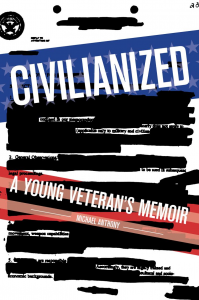


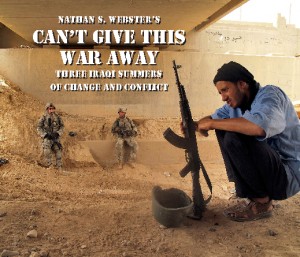
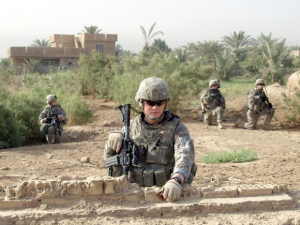
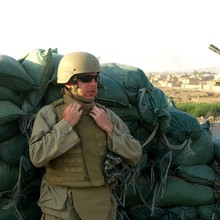
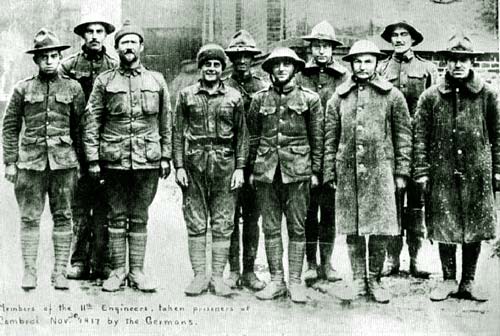 One of the possible subjects in writing military essays is the issues that surround veterans and prisoners of war. There are quite a many issue involving veterans and POWs, which should be addressed not only by military essays and reports but also of their respective governments. Veterans and POWs often get special attention from their respective countries because of the sacrifices they made during a conflict.
One of the possible subjects in writing military essays is the issues that surround veterans and prisoners of war. There are quite a many issue involving veterans and POWs, which should be addressed not only by military essays and reports but also of their respective governments. Veterans and POWs often get special attention from their respective countries because of the sacrifices they made during a conflict.
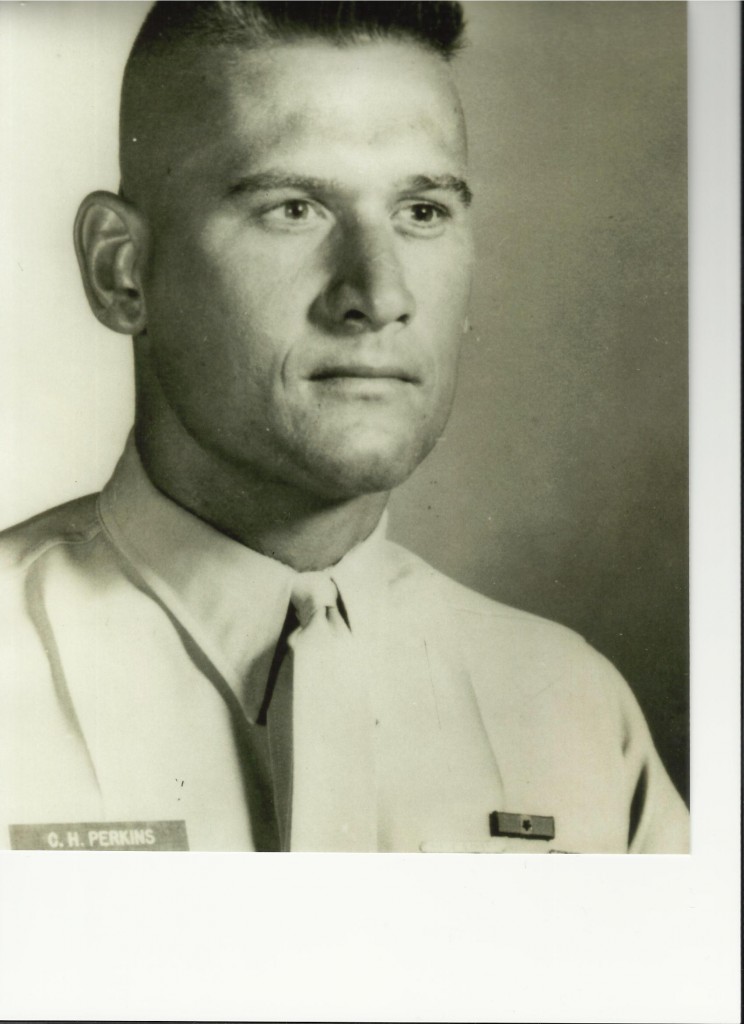
 With a dozen Marines on either side of him, Marc Winslow marched down a sullen dirt road. “Hoo—rah,” he screamed as the drill instructor called cadence. Marc looked to the left and then to the right, with heads shaven to the skin, faces free of stubble, and a snarl of the lip, each Marine was indistinguishable from the next. His shoulders were back, his head was held high, after months of training, he was finally one of “the few, the proud,” he was a Marine.
With a dozen Marines on either side of him, Marc Winslow marched down a sullen dirt road. “Hoo—rah,” he screamed as the drill instructor called cadence. Marc looked to the left and then to the right, with heads shaven to the skin, faces free of stubble, and a snarl of the lip, each Marine was indistinguishable from the next. His shoulders were back, his head was held high, after months of training, he was finally one of “the few, the proud,” he was a Marine. Jon Stewart just had an awesome interview with Sergeant Leroy Petry. Sergeant Petry is the latest, living, recipient of the Medal of Honor. A very brave and honorable soldier, he has an amazing story to tell. Whether you agree or disagree with the war, is moot. What’s amazing about his story is the amount of courage, bravery and selflessness that one man can have towards his troops. His story can inspire us all the be better people (and he also shows off his kick-ass new robotic arm).
Jon Stewart just had an awesome interview with Sergeant Leroy Petry. Sergeant Petry is the latest, living, recipient of the Medal of Honor. A very brave and honorable soldier, he has an amazing story to tell. Whether you agree or disagree with the war, is moot. What’s amazing about his story is the amount of courage, bravery and selflessness that one man can have towards his troops. His story can inspire us all the be better people (and he also shows off his kick-ass new robotic arm).